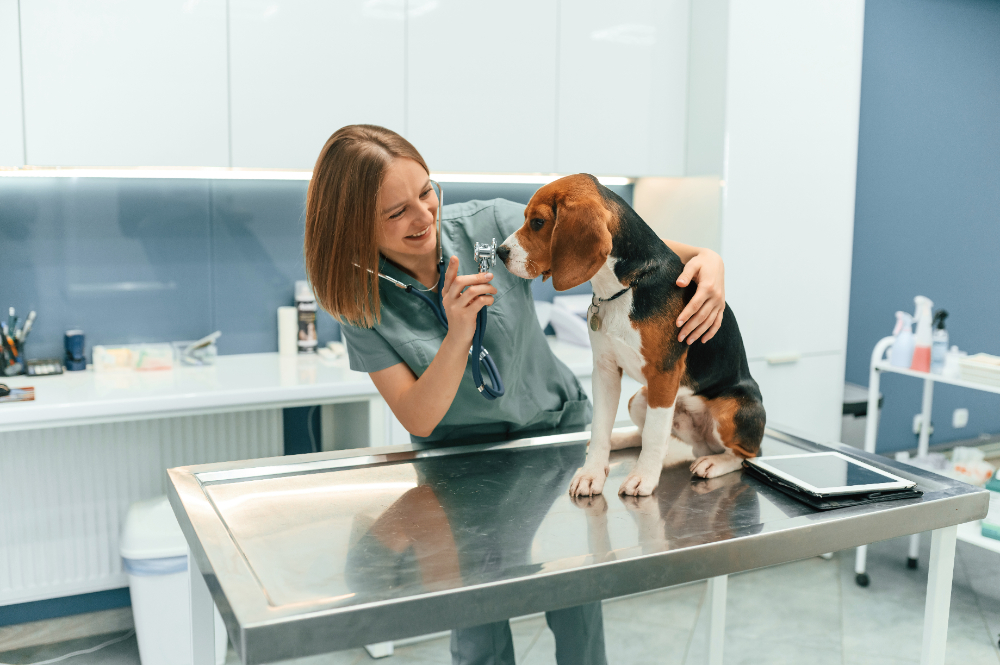How To Deworm a Dog

Keeping your furry friend happy and healthy is a priority, and understanding intestinal worms is a key part of their care. Worms are parasitic organisms that live inside your dog’s intestines, feeding on nutrients and potentially causing a range of health problems. Common types of intestinal worms in dogs include roundworms, hookworms, tapeworms, and whipworms. These parasites are surprisingly common and can be contracted through various means, such as contaminated soil, infected feces, or even fleas.
Left untreated, worms can lead to serious health issues like malnutrition, anemia, and intestinal blockages. Fortunately, sticking to a regular deworming schedule helps protect your dog, your other pets, and even your family from the risks posed by these pesky parasites.
Why Deworming is So Important
Dogs can pick up worms in surprising ways—through contaminated soil, water, or prey. Puppies are particularly vulnerable since they can inherit worms from their mother during pregnancy or nursing. No matter your dog’s age or lifestyle, a deworming routine is essential to keep them healthy and happy.
If worms go unchecked, they can cause several issues, including:
- Poor coat condition and weight loss
- Diarrhea or vomiting
- Lethargy and reduced appetite
- Intestinal blockages
- Even respiratory trouble in severe cases
Spotting Signs of Worms in Your Dog
Even if your dog isn’t showing signs of worms, staying alert is key. Keep an eye out for these symptoms:
- Diarrhea or loose stools: Worms can upset your dog’s stomach.
- Weight loss or poor appetite: Worms rob your dog of essential nutrients.
- Bloated belly: Some worms can make your dog look pot-bellied.
- Visible worms in stool or vomit: This is a clear sign that action is needed.
- Dry or dull coat: A lack of nutrients can make your dog’s fur lose its shine.
- Lethargy or weakness: Severe infestations may leave your dog feeling worn out.
Common Types of Worms and Their Symptoms
Here’s a quick rundown of the usual culprits and what to watch for:
- Roundworms: Diarrhea, vomiting, pot-bellied appearance; picked up from contaminated soil or the mother’s milk.
- Hookworms: Anemia, lethargy, and skin irritation; transmitted through soil or skin.
- Tapeworms: Weight loss and visible segments in stool; often from ingesting fleas.
- Whipworms: Bloody diarrhea and weight loss; acquired from contaminated soil.
- Heartworms: Coughing, lethargy, and heart damage; spread by mosquito bites.
Testing for Worms in Dogs
As stated in the American Kennel Club: ‘The vet will examine the fecal sample under a microscope. Once the sample is mixed with a solution, any parasite eggs will float to the top. The use of a special stain makes it easier to see the eggs through a microscopic examination.
“The eggs of different parasites have different appearances so we can actually pinpoint what worms are present without seeing the worm,” Dr. Attas says. Sometimes the test can come back with a false negative. This can happen if the worms aren’t laying eggs at that time. We would call that fecal specimen negative but in fact, there still could be parasites present,” Dr. Attas says. “That’s why we recommend repeat deworming.”
How Often Should You Deworm?
Frequency depends on your dog’s age, lifestyle, and risk factors:
- Puppies: Start early—every 2-4 weeks until they’re 12 weeks old, then monthly until 6 months.
- Adult Dogs: Deworm once or twice a year for indoor pets, or every 3-6 months for dogs with higher exposure risks.
- Breeding Dogs: Deworm before mating, during pregnancy, and after whelping to protect their pups.
Treatment for Deworming Dogs
For puppies, deworming typically begins when your pet is two weeks old and continues every two weeks until they’re weaned. The timing depends on which product the vet is using and what the label recommends. Some medications have a weight limit so that a puppy may receive their first dose at closer to three weeks old.
For adult dogs, Dr. Attas says that deworming is recommended when worms are present or when there’s a high index of suspicion that worms are present. “They’re very safe drugs, except if you’re a worm.”
If your dog has abnormal stool and testing comes back negative, your vet might administer a dose of deworming medicine to treat any worms that aren’t showing up on the fecal test. “Fortunately, the readily available prescription medications for deworming kill all of the different types of long worms, and some kill tapeworms as well,” she adds.’
How Can Pet Insurance Help You if Your Dog Needs a Treatment?
Pet insurance can be a valuable tool in managing the costs of treating a dog’s veterinary expenses. By having a pet insurance policy in place, you can have peace of mind knowing that you can provide medical care for your furry companion without worrying about the financial burden. Pet insurance can help cover the costs of veterinary consultations, diagnostic tests, medications, and even specialized treatments if required.
Reimbursement
This method is the most common for pet insurance companies. You pay out of pocket for the veterinarian bill, and then the insurance company reimburses you for what’s covered under the insurance plan. The steps look like this.
- You pay the vet bill after your dog’s visit.
- You fill out the pet insurance claim form.
- Submit the claim form and other required documentation to the insurer.
- After the claim is approved, you will be reimbursed for eligible expenses.
Odie’s Illness and Injury pet health insurance plan offers comprehensive coverage for your dog.
What Does Odie Pet Insurance Cover?
Pet insurance covers various veterinary expenses, providing financial protection and peace of mind for pet owners. Here are the details of the coverage options offered by Odie Pet Insurance:
Illness & Injury Plan
The Illness & Injury Plan is an all-inclusive insurance plan designed to cover a wide range of medical needs for your pet. This plan includes comprehensive coverage for various illnesses, injuries, and veterinary services. Some of the covered items include:
- Veterinary exams and consultations
- Diagnostics (e.g., X-rays, lab tests)
- Prescribed medications
- Surgeries and hospitalization
- Rehabilitation, acupuncture, or chiropractic treatments
- Medically necessary supplies
The Wellness Plan
The Wellness Plan is a monthly membership that focuses on preventive care and covers routine veterinary services.
- Provides reimbursements for routine care items, including wellness visits (exams and vaccines), testing and parasite prevention, dental cleanings and at-home dental care, vitamins, supplements, and more.
- Through Odie’s partnership with Petivity, a leader in smart pet products and proactive care, Wellness Plan members can also receive reimbursements for Petivity devices and health kits, as well as eligible Purina food and supplements.
- Total reimbursement up to $700 per year.



